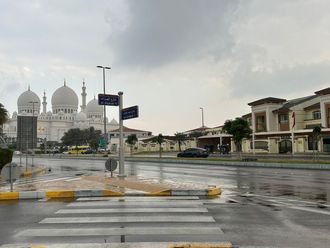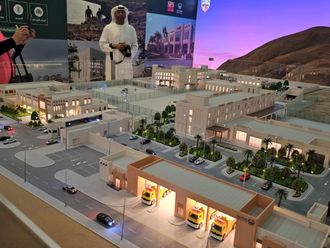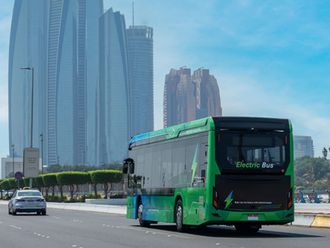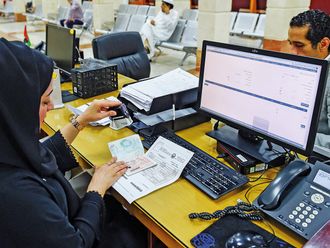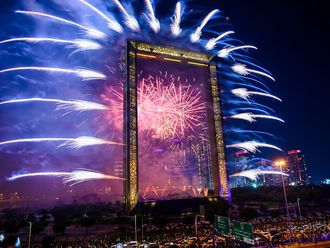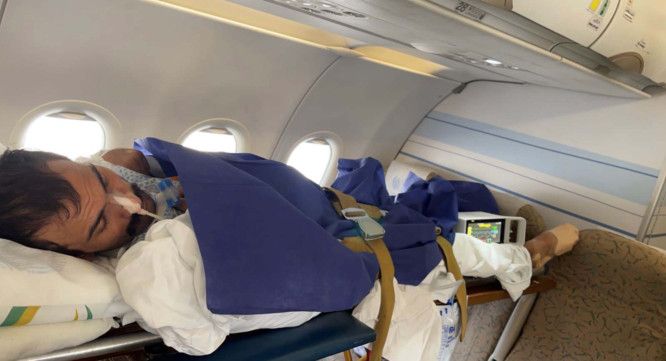
Dubai: A young Pakistani expatriate, who was bedridden following a cardiac arrest and brain damage in September 2021, was repatriated with an intensive care unit (ICU) set up onboard a passenger flight this week.
Pakistan Consulate in Dubai and a private hospital in Dubai joined hands to fly Muhammad Rashid, 25, home on ventilator and other critical medical support from Humancare Worldwide, a company providing medical treatment facilitation services.
According to the consulate, Rashid, a cleaner with a company in Deira since 2016, was rushed to the hospital in an ambulance of Dubai Corporation for Ambulance Services on September 17, 2021.
A medical report from the hospital, which did not wish to be named, showed that he had suffered anoxic brain damage, cardiac arrest, dehydration and heat syncope (heat stress-related fainting). The youth, who remained on a ventilator for weeks, later underwent tracheostomy. He was under treatment in the ICU unit of the hospital for months.
The hospital approached the consulate to help trace the relatives of Rashid, a spokesperson of the consulate said, adding that the company had filed an absconding case against the cleaner.
Meanwhile, his family back home in Karachi was clueless as to what had happened to him. One of his cousins, who was sent to Dubai to enquire about Rashid, approached the consulate for help. “Rashid had lost his father. According to his mother, Rashid was the only earning member of the family,” the consulate official said.
Medical bills for Dh1.5 million waived
He said the hospital waived the patient’s bill amounting to a whopping Dh1.5 million and offered support for repatriating him. “It was a great gesture from the hospital as there was nobody to foot the bill and we didn’t have that much of funds to support him,” he said.
Since the company did not cooperate, the consulate did the paperwork to get clearance for his repatriation. Due to his critical condition, Rashid required ICU medical support, including a ventilator and an ICU doctor as an escort for the repatriation.
“The consulate arranged an out-pass for his travel clearance and also paid for his stretcher ticket and the return ticket of the doctor who accompanied him. Humancare Worldwide arranged the doctor and the ICU equipment at a 50 per cent discount, which was paid by the hospital,” he added.
Mansoor Bin Mukhtar, head of Operations and Business Development, Humancare Worldwide, said the company also did its bit in offering support to the patient in various other ways. “We coordinated with the airline (Pakistan International Airlines) and the hospital in Karachi (Jinnah Postgraduate Medical Centre) for arranging his repatriation on the condition that we would provide ICU medical equipment and an expert medical escort. In this case, we offered the service onboard a commercial airline on humanitarian grounds,” Mukhtar said.
He said the company had provided free ambulance service from the hospital to the airport in Dubai and again from the airport in Karachi to the local hospital where Rashid was transferred to.
Rashid’s mother and relatives met him upon his arrival in Karachi, following which he was shifted to the COVID-19 isolation ward in the hospital.
Future expenses for Rashid’s treatment will be borne by the Pakistan government.



